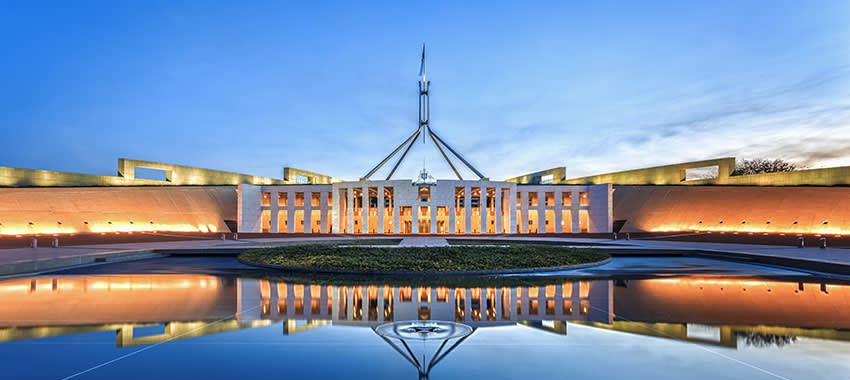
Members of industry have welcomed the Australian Labor Party’s first budget, particularly applauding its focus on affordable housing.
Following the release of the Albanese government’s first budget on Tuesday evening (25 October), members of industry have begun outlining their initial thoughts on the package.
In the budget 2022–23, Treasurer Jim Chalmers MP flagged that GDP growth is expected to slow (though not hit recession) next year, slowing to around 1.5 per cent in 2023–24.
Inflation is forecast to peak at 7.75 per cent in December this year before easing off to 3.5 per cent in mid-2024.
The Labor government therefore pulled back on spending, bringing the budget deficit down from $78 billion (as per the March 2022 budget) to $36.9 billion.
The managing director of the Finance Brokers Association of Australia (FBAA), Peter White AM, noted that, with inflation expected to remain high over the next few years, mortgage interest rates would also continue to rise — suggesting variable home loan rates could reach between 5.5–6.0 per cent or “possibly higher” as we head into the first quarter of 2023.
As such, he welcomed the investment boost for affordable housing — particularly noting the support for families, women and those fleeing domestic violence — saying it would not only help more people buy their own homes, but also help stimulate the commercial sector while keeping brokers busy.
Mr White added that higher rates could also put “downward pressure on property values” as demand falls, which would also bring more buyers into market and provide “lots of work for brokers”.
He said he would continue to liaise with government on broker issues such as clawback.
The chief executive of the Mortgage & Finance Association of Australia (MFAA), Anja Pannek, said she thought the budget “looks to chart a steady course against the backdrop of a challenging global economic environment”.
“The 2022 budget announcement includes announcements to increase housing supply in a sustainable way, with 1 million new homes proposed in the next five years. The increase in supply will create opportunities for Australians to own their own home,” Ms Pannek said.
“We support these measures, with brokers uniquely placed to help more Australians into these homes by continuing to facilitate competition through providing home buyers with access to credit and choice to a wide range of lenders.”
The MFAA CEO said she would be attending meetings in Canberra in the next few weeks to discuss the budget and “other issues impacting on the industry”.
More could have been done for borrowers
While the budget does include more funds and ambitions to build social and affordable housing, the CEO of Lendi Group, David Hyman, said he felt the package left mortgagors wanting: “In the current climate with interest rates being passed on in quick order and successively, we want people to avoid un-needed mortgage stress, particularly with the rising costs of living.
“Unfortunately, we don’t believe this budget will be a win for homeowners, as it seems to have not properly addressed these rising cost of living pressures,” Mr Hyman said.
“In fact, mortgage holders are being flagged as ‘losers’ in the budget based on media reports.”
Mr Hyman added that — based on the average loan size of $590,00 and the fact that home owners can still access interest rates in the high 3 [per cent range] — savings of upwards of $30,000 over the lifetime of their loan are available, which provide mortgage holders cost-of-living relief not being offered in Labor’s budget.
“To access these savings, homeowners must take an active role in their mortgage through interrogating their loan, seeking alternative options and taking early action,” he continued.
The Lendi Group CEO said that the rising cash rate should therefore be “as strong an impetus as ever for borrowers to act now and start the refinance conversation to potentially secure a better rate and save on their lender loyalty tax”, noting that “reaching out to a local mortgage broker is a great place to start”.
“Brokers are experts in finding and securing competitive rates and offering a personalised approach to meet their client’s needs,” he concluded.
Mortgage broker and Shore Financial CEO, Theo Chambers, said he thought the commitment of a million “new, well-located homes” over the next five years was “a great initiative”.
“Not only should this help the supply issue in certain housing markets, but it will hopefully also create jobs,” he said.
Mr Chambers said his main “take out” from this budget was the “cost of living relief package with cheaper childcare, cheaper medicines, expanded paid parental leave entitlements, more affordable housing and boosting pensions should help households feeling the pinch of inflation and increased living costs”.
“It’s also crucial to help workers stay in the workforce, so expanding childcare help and parental leave aids this initiative,” the Sydney-based broker said.
The Financial Services Council also welcomed the new Housing Accord, which CEO Blake Briggs said “delivers on the Government’s commitments”.
“[T]he financial services industry looks forward to the opportunity to take on the historical challenges that have prevented institutional capital from investing in affordable housing,” Mr Briggs added.
[Related: Labor unveils affordable housing push in Budget 2022-23]

